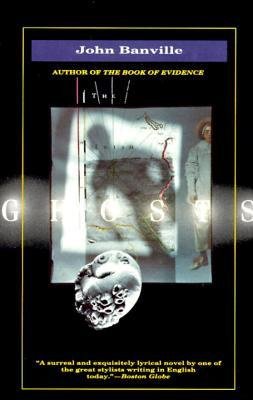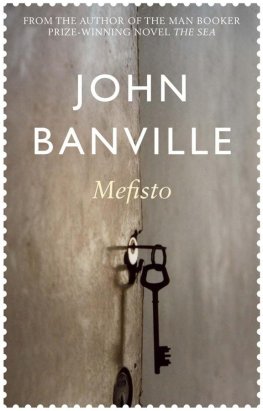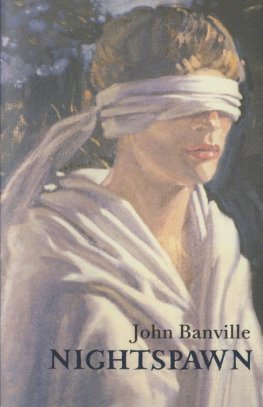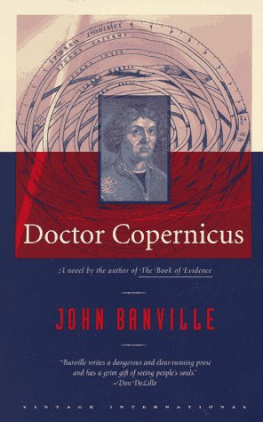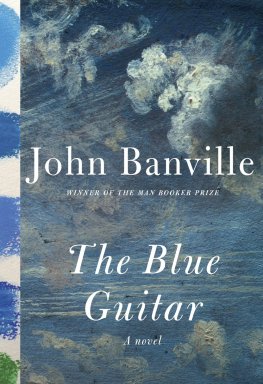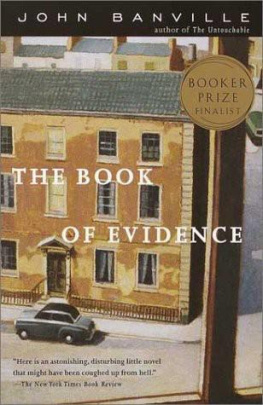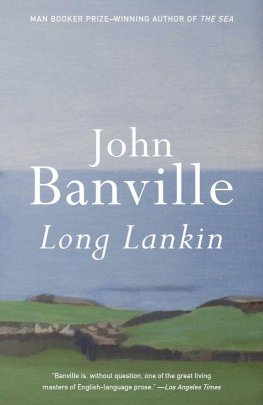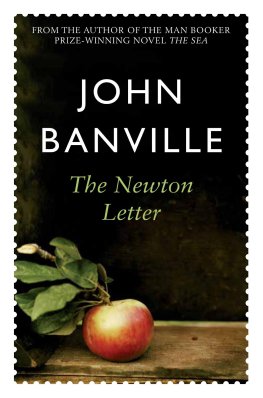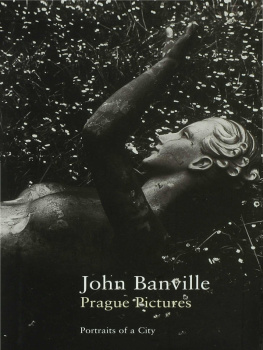John Banville - Eclipse
Here you can read online John Banville - Eclipse full text of the book (entire story) in english for free. Download pdf and epub, get meaning, cover and reviews about this ebook. year: 2002, publisher: Vintage, genre: Art. Description of the work, (preface) as well as reviews are available. Best literature library LitArk.com created for fans of good reading and offers a wide selection of genres:
Romance novel
Science fiction
Adventure
Detective
Science
History
Home and family
Prose
Art
Politics
Computer
Non-fiction
Religion
Business
Children
Humor
Choose a favorite category and find really read worthwhile books. Enjoy immersion in the world of imagination, feel the emotions of the characters or learn something new for yourself, make an fascinating discovery.

- Book:Eclipse
- Author:
- Publisher:Vintage
- Genre:
- Year:2002
- Rating:4 / 5
- Favourites:Add to favourites
- Your mark:
- 80
- 1
- 2
- 3
- 4
- 5
Eclipse: summary, description and annotation
We offer to read an annotation, description, summary or preface (depends on what the author of the book "Eclipse" wrote himself). If you haven't found the necessary information about the book — write in the comments, we will try to find it.
Eclipse — read online for free the complete book (whole text) full work
Below is the text of the book, divided by pages. System saving the place of the last page read, allows you to conveniently read the book "Eclipse" online for free, without having to search again every time where you left off. Put a bookmark, and you can go to the page where you finished reading at any time.
Font size:
Interval:
Bookmark:
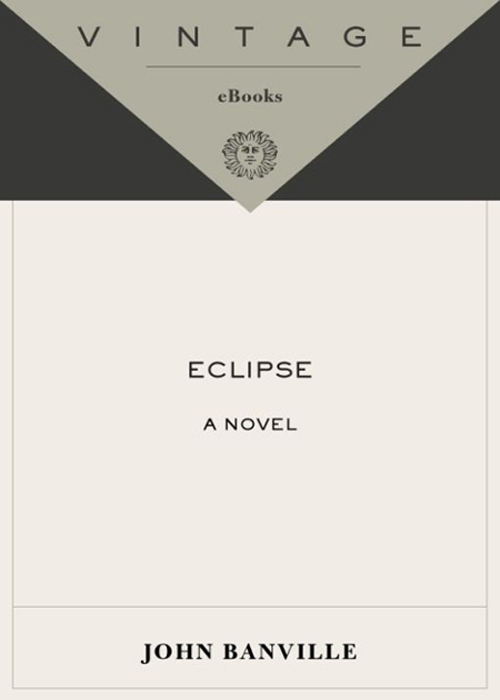
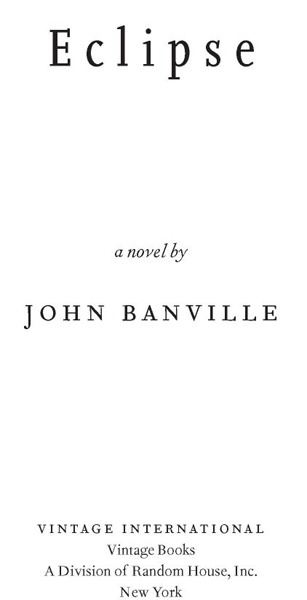
Table of Contents
In Memoriam
Laurence Roche
International Acclaim for JOHN BANVILLEs Eclipse
An exercise in discursive virtuosity. Mr. Banville is that rare writer who can pack all five senses into a declarative sentence. The Wall Street Journal
The tragic undertones of Eclipse, driven by its line-by-line beauty, make it often mesmerizing.
The Boston Globe
Spectacularly beautiful... a work of art.
The Observer
Extraordinarily well written, countering Nabokovian lushness with Beckettian asperity and seemingly composed all the way through with the kind of attention usually reserved only for opening and closing paragraphs.
Times Literary Supplement
Haunting... arresting.... [Banville] writes with extraordinary beauty and originality.
The Independent
What is unusualdefiantly, and therefore perhaps gloriously soabout Banvilles fiction is the prose itself: poetic, sensuous, revelatory.
The New York Review of Books
[Banville] gives the reader plenty to think about long after the last page is turned.
The Seattle Times
An entrancing meditation upon identity and failure... the authors sense of language startles and inspires.... Eclipse is a deeply moving account of one mans confused, passionate, perhaps even mad struggle to make sense of what his life has become.
The San Diego Union-Tribune
Beautiful, subtle, immaculate prose.
The Orlando Sentinel
Banvilles language has a beautiful, persuasive rhythm.... His book is both compelling and deeply moving.
The Sunday Times
I
At first it was a form. Or not even that. A weight, an extra weight; a ballast. I felt it that first day out in the fields. It was as if someone had fallen silently into step beside me, or inside me, rather, someone who was else, another, and yet familiar. I was accustomed to putting on personae but this, this was different. I stopped, struck, stricken by that infernal cold I have come to know so well, that paradisal cold. Then a slight thickening in the air, a momentary occlusion of the light, as if something had plummeted past the sun, a winged boy, perhaps, or falling angel. It was April: bird and bush, silver glint of coming rain, vast sky, the glacial clouds in monumental progress. See me there, the haunted one, in my fiftieth year, assailed suddenly, in the midst of the world. I was frightened, as well I might be. I imagined such sorrows; such exaltations.
I turned and looked back at the house and saw what I took to be my wife standing at the window of what was once my mothers room. The figure was motionless, gazing steadily in my direction but not directly at me. What did she see? What was it she was seeing? I felt diminished briefly, an incidental in that gaze, dealt, as it were, a glancing blow or blown a derisive kiss. Day reflecting on the glass made the image in the window shimmer and slip; was it she or just a shadow, woman-shaped? I set off over the uneven ground, retracing my steps, with this other, my invader, walking steadily inside me, like a knight in his armour. The going was treacherous. The grass clutched at my ankles and there were holes in the clay, under the grass, made by the hoofs of immemorial cattle when this edge of town was still open country, that would trip me up, perhaps break one of the myriad delicate bones it is said are in the foot. A gush of panic rose in me like gorge. How, I asked myself, how could I stay here? How could I have thought I could stay here, all alone? Well, too late now; I would have to go through with it. This is what I told myself, I murmured it aloud: Ishall have to go through with it, now. Then I smelled the faint salt reek of the sea and shivered.
I enquired of Lydia what it was she had been looking at.
What? she said. When?
I gestured. From the window, upstairs; you were looking out at me.
She gave me that dulled gaze she had lately developed, drawing her chin down and in, as if she were slowly swallowing something. She said she had not been upstairs. We stood in silence for a moment then.
Arent you cold? I said. Im cold.
Youre always cold.
I dreamed last night I was a child and here again.
Of course; you never left here, thats the truth.
A fine feel for the pentameter, my Lydia has.
The house itself it was that drew me back, sent out its secret summoners to bid me come... home, I was going to say. On the road one winter twilight an animal appeared in front of the car, cowering and yet fearless-seeming, sharp teeth bared and eyes flashing in the glare of the headlamps. I had stopped on instinct before I registered the thing, and sat aghast now smelling mephitic fumes of tyre smoke and listening to my own blood hammering in my ears. The animal made a movement as if to flee, then stopped still again. Such fierceness in that stare, the electric eyes an unreal neon-red. What was it? Weasel? Ferret? Too big for these, yet not big enough for fox or dog. Just some wild unknown thing. Then at a low run, seemingly legless, silently, it was gone. My heart was pounding yet. The woods leaned inward on either side of me, blackly brown against the last faint radiance of the dying day. For miles I had been travelling in a kind of sleep and now I thought I was lost. I wanted to turn the car around and drive back the way I had come, but something would not let me go. Something. I switched off the headlights and struggled out and stood befuddled on the road, the damp half-darkness folding me about, making me its own. From this low hill the twilit land ahead fell away into shadow and mist. An unseen bird above me in the branches gave a cautious croak, a wafer of ice in the wet verge snapped glassily under my heel. When I sighed, an ectoplasmic flaw of breath stood in front of me briefly like a second face. I walked forward to the brow of the hill and saw the town then, its few little glimmering lights, and, beyond, the fainter glimmer of the sea, and I knew where unknowingly I had come to. I went back and got behind the wheel again and drove to the top of the hill and there I switched off the engine and the lights and let the car roll down the long incline in bumping silence, dreamily, and stopped in the square, before the house standing in its darkness, deserted, its windows all unlit. All, all unlit.
Now as we stood together at one of these same windows I tried to tell my wife about the dream. I had asked her to come down with me, to look over the old place, I had said, hearing the wheedling note in my voice, to see, I said, if she thought it could be made habitable again, if a man might inhabit it, alone. She had laughed. Is this how you think youll cure whatever it is thats supposed to be wrong with you, she said, by running back here like this, like a child who has had a fright and wants its mama? She said my mother would be laughing in her grave. I doubted it. Even in life she was never a great one for mirth, my mother. Laughing will endcrying, that was one of her sayings. As I described my dream Lydia listened impatiently, watching the tumultuous April sky above the fields, huddled into herself against the dank air of the house, the wings of her nose whitening as she suppressed a yawn. In the dream it was an Easter morning, and I a child standing on the doorstep looking out at the recently rained on, sun-dazzled square. Birds flitted, whistling, a breeze swooped and the already blossoming cherry trees shivered in vernal anticipation. I could feel the cool of outdoors on my face, could smell from within the house the smells of the feast-day morning: fusty bedclothes, tea smoke, the charry embers of last nights fire, and something redolent of my mother, some scent or soap, a woody tang. All this in the dream, and so clear. And there were Easter presents, as I stood in the doorway they were a palpable glow of happiness behind me in the depths of the house: eggs that my dream-mother had emptied and then filled somehow with chocolatethat was another smell, the fuggy smell of melted chocolateand a yellow plastic chicken.
Next pageFont size:
Interval:
Bookmark:
Similar books «Eclipse»
Look at similar books to Eclipse. We have selected literature similar in name and meaning in the hope of providing readers with more options to find new, interesting, not yet read works.
Discussion, reviews of the book Eclipse and just readers' own opinions. Leave your comments, write what you think about the work, its meaning or the main characters. Specify what exactly you liked and what you didn't like, and why you think so.

